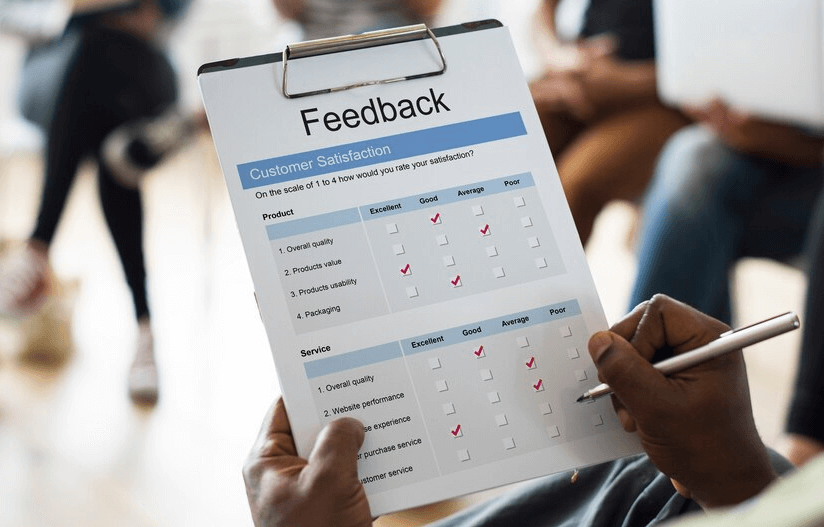The Importance of Annual Reviews and Their Impact on Employees
December 19, 2024
6 minutes
By Coachello

Annual reviews are a fundamental aspect of performance management, providing a structured opportunity for both employees and managers to reflect on the past year, set goals, and align expectations. These evaluations are crucial for enhancing communication, recognizing achievements, and planning for future growth. Despite their sometimes daunting nature, annual reviews play a vital role in ensuring that employees feel valued, understand their contributions, and are motivated to continue developing their skills and careers. By offering a clear framework for feedback and development, annual reviews help create a more engaged and productive workforce.
Why Annual Reviews are Important
- Feedback and Development: Annual reviews offer a formal setting for managers to provide constructive feedback. This feedback is essential for employee development, helping individuals understand their strengths and areas for improvement. It creates a culture of continuous learning and growth within the organization.
- Goal Setting and Alignment: The reviews are an excellent opportunity to set clear, achievable goals for the upcoming year. Aligning individual objectives with the company’s strategic goals ensures that everyone is working towards the same vision, enhancing overall productivity.
- Recognition and Motivation: Recognizing employees’ hard work and achievements during annual reviews can significantly boost morale and motivation. Feeling valued and appreciated encourages employees to maintain high performance levels.
- Career Development: Annual reviews are a platform for discussing career aspirations and development plans. This dialogue helps employees see a clear path for advancement within the company, which can improve retention rates and job satisfaction.
- Performance Documentation: Keeping a record of performance reviews helps in making informed decisions about promotions, raises, and other career advancements. It provides a documented history of an employee’s progress and contributions over time.
Reality of how Employees are Affected
The impact of annual reviews on employees can be profound. Positive reviews can lead to increased confidence, motivation, and a sense of accomplishment. Conversely, negative reviews, if not handled carefully, can lead to demotivation and disengagement. Therefore, it’s crucial for managers to approach these reviews with empathy and a focus on constructive feedback.
Employees benefit from knowing where they stand and what is expected of them. Clear communication during reviews helps reduce uncertainty and anxiety, providing a roadmap for future performance and development. When employees understand their strengths and areas for improvement, they can take proactive steps to enhance their skills and performance.
Moreover, annual reviews can highlight training and development needs, ensuring that employees receive the support and resources necessary to succeed. This proactive approach to employee development can lead to a more skilled and capable workforce, benefiting both the individual and the organization. Talented managers can thus play a critical role in this process. Studies show that they can boost productivity by 22% and increase profitability by 48%, primarily by ensuring the right combination of skills and personalities within their teams. This strategic alignment not only enhances team performance but also contributes to overall organizational success, demonstrating the significant impact effective management can have on employee outcomes.

Role of Managers in Annual Reviews
Managers play a critical role in the success of annual reviews. Their approach can significantly influence the outcomes and impact on employees. Effective managers use these reviews to provide constructive feedback, set clear expectations, and support their team’s development. As Dwight D. Eisenhower once said, “Leadership is the art of getting someone else to do something you want done because he wants to do it.” By preparing thoroughly and approaching the review with empathy, managers can create a positive and productive environment. This not only helps in addressing performance issues but also in recognizing and rewarding achievements, which can boost employee morale and motivation.
Best Practices for Conducting Annual Reviews
Implementing best practices can make annual reviews more effective and less stressful for both managers and employees. This includes preparing thoroughly by reviewing performance data and setting a positive tone during the meeting. Managers should focus on specific examples of performance, both positive and negative, to provide clear and actionable feedback. Additionally, setting realistic and achievable goals for the upcoming year can help employees understand what is expected of them and how they can improve. Encouraging open communication and allowing employees to share their perspectives can also make the review process more collaborative and constructive.
Common Challenges and How to Overcome Them
Annual reviews can present various challenges, such as bias, anxiety, and miscommunication. Bias can occur when managers allow personal feelings or isolated incidents to influence their evaluations. To overcome this, managers should rely on objective performance data and seek input from multiple sources. Anxiety can be reduced by creating a supportive environment and reassuring employees that the review is an opportunity for growth, not just criticism. Miscommunication can be addressed by ensuring that feedback is clear, specific, and focused on behaviors rather than personal attributes. Providing examples and discussing potential solutions can help employees understand and act on the feedback.

The Benefits of Continuous Feedback
While annual reviews are important, they should be part of a broader strategy of continuous feedback. Regular check-ins and ongoing feedback can complement annual reviews and contribute to a more dynamic and responsive performance management system. Continuous feedback helps employees stay on track with their goals and make adjustments throughout the year, rather than waiting for the annual review. It also allows managers to address issues promptly and recognize achievements in real-time, which can enhance employee engagement and performance. By fostering a culture of continuous feedback, organizations can create a more agile and supportive work environment.
The Future of Annual Reviews
The future of annual reviews is being shaped by emerging trends and innovations in performance management. Technology and AI are playing an increasingly important role in enhancing the review process. AI tools can provide real-time insights into employee performance, track progress, and identify areas for improvement. These tools can also help reduce bias and ensure that evaluations are based on objective data. Additionally, there is a growing emphasis on employee development and well-being, with organizations focusing on creating a more holistic and supportive approach to performance management.
But what does this mean for the traditional review process? Will AI-driven insights replace human judgment, or will they complement it? As companies navigate these changes, they must consider how to balance technology with the human touch. By embracing these trends, companies can make annual reviews more effective and meaningful for their employees. How can organizations ensure that these innovations lead to genuine improvements in employee satisfaction and performance? The answer lies in integrating these tools thoughtfully and maintaining a focus on the human aspects of management. Our solution that stands out in this evolving landscape is Coachello’s AI-powered coaching platform.

How AI Coaching Affects Annual Reviews
The integration of AI coaching tools into the annual review process is transforming how feedback and development are managed. AI can provide real-time, data-driven insights into employee performance, making reviews more objective and comprehensive. For instance, Coachello leverages AI to create personalized development paths by analyzing individual needs, preferences, and performance data. This allows for a tailored coaching experience that feels like a one-on-one session with a dedicated coach. Coachello’s AI can conduct initial assessments, set specific goals, and provide continuous feedback, adapting to the user’s evolving needs. Designed specifically for enhancing performance reviews, Coachello offers an integrated role-playing feature and voice-enabled AI that is available 24/7. This tool supports managers in preparing for reviews and provides continuous feedback and development opportunities for employees. By leveraging Coachello, companies can make annual reviews efficient, engaging, and supportive, leading to better outcomes for everyone.
By using AI tools like Coachello, companies can enhance the accuracy and fairness of their performance evaluations. AI helps in identifying patterns and trends in employee performance, enabling more personalized and effective development plans. This not only improves the review process but also ensures that employees receive the guidance and support they need to succeed. Furthermore, AI can assist in reducing biases that may occur during the review process. By analyzing data objectively, AI tools can ensure that evaluations are based on actual performance rather than subjective opinions. This can lead to a more equitable and transparent review process, fostering trust and fairness within the organization.
In a nutshell, annual reviews are a vital component of performance management, offering numerous benefits for both employees and employers. When combined with AI coaching, these reviews can become even more effective, fostering a culture of continuous improvement and development. By embracing both traditional and innovative approaches to performance management, organizations can ensure that their employees are well-supported and positioned for success.
Share this article
Related Posts
Unlock the Power of Coaching
Enhance leadership, boost performance, and drive growth with AI-powered and human-led coaching.
Enter your email and we’ll send you the brochure



